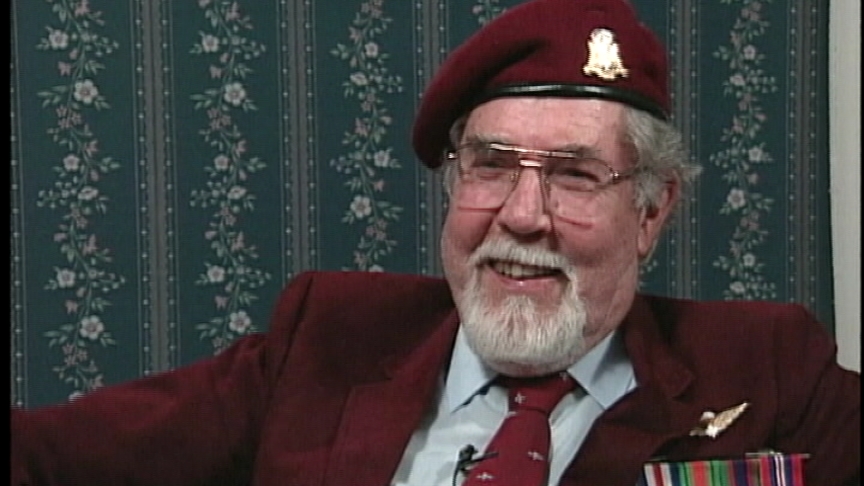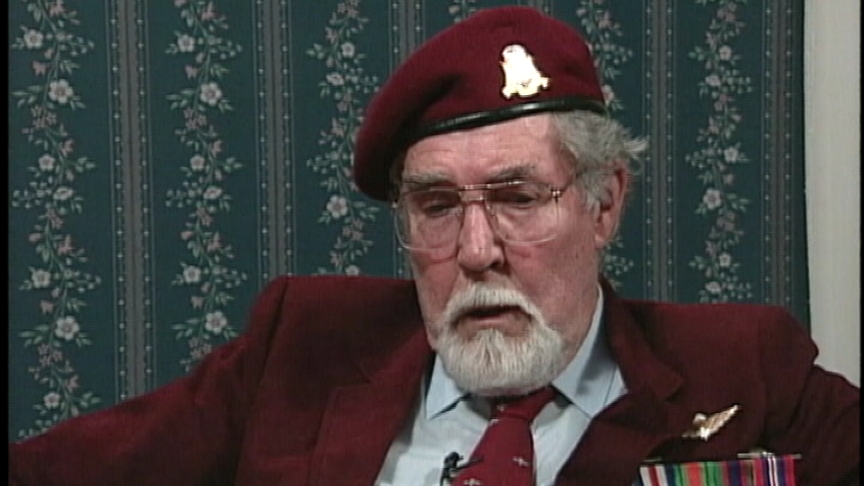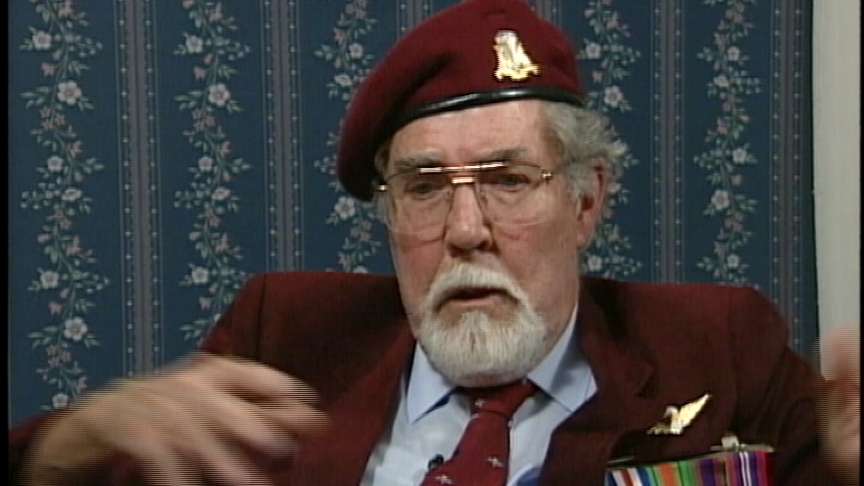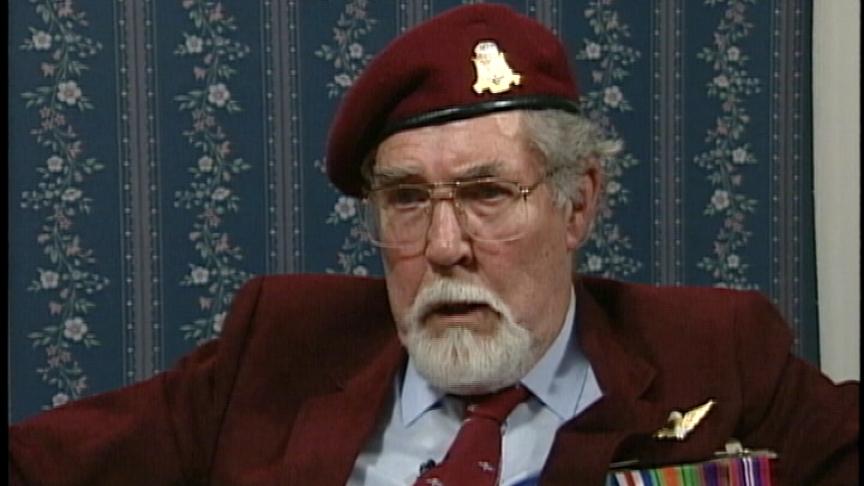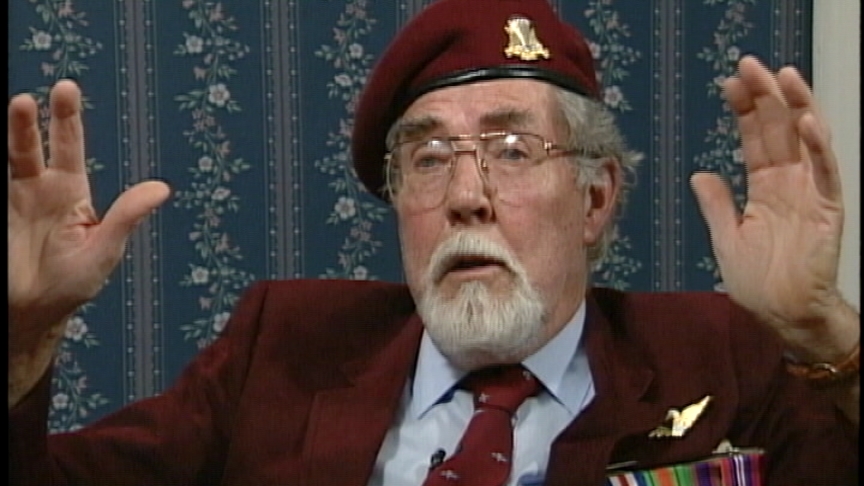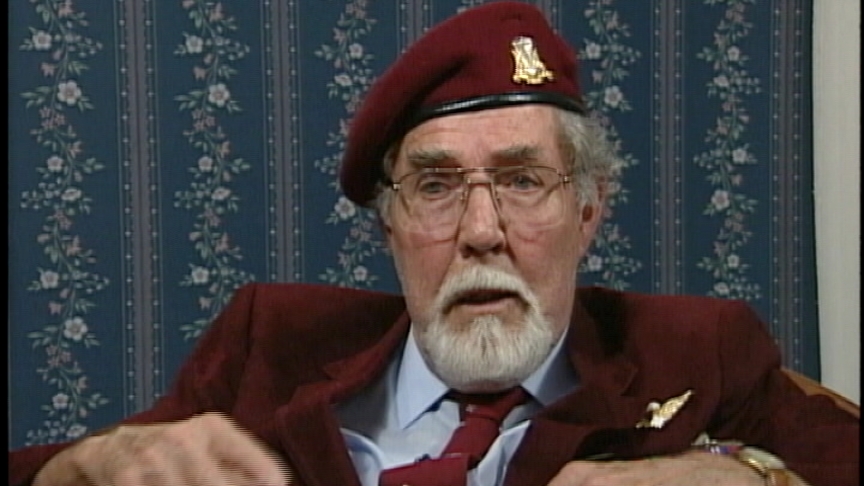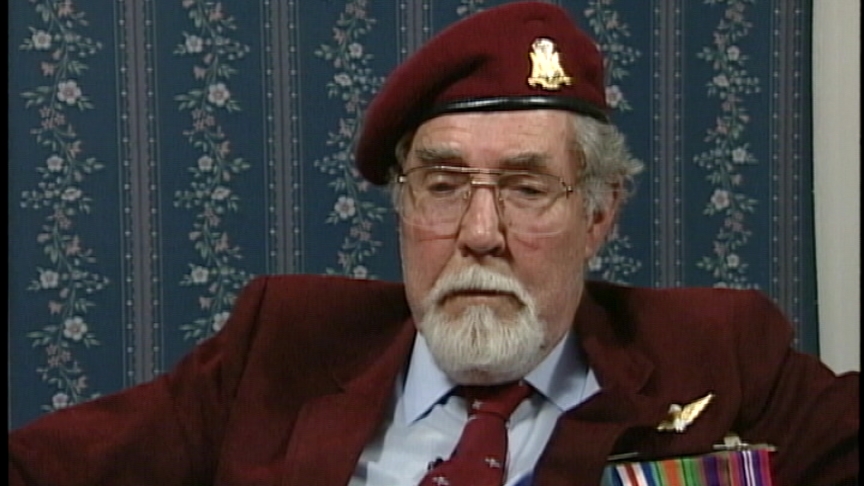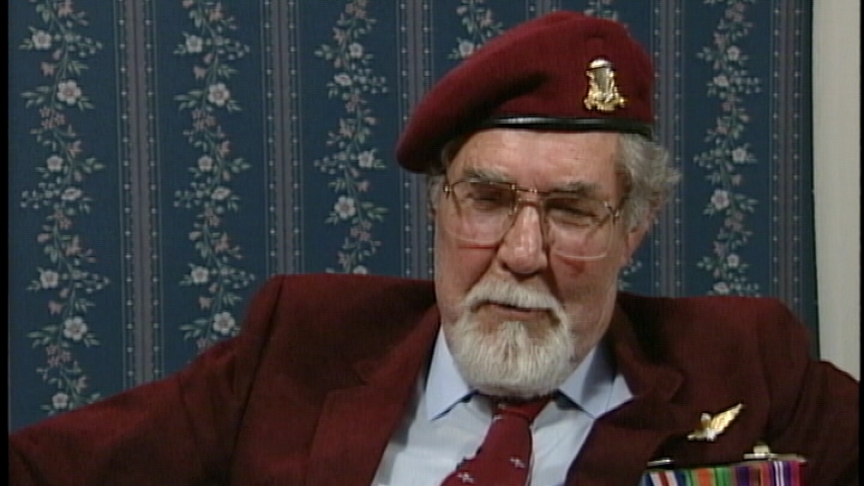Landing in a Tree!
Heroes Remember
Landing in a Tree!
Transcript
Paratroopers boarding planes.
involved in that. And we parachuted in the 24th of March aboutPlanes taking off.
Paratroopers inside a plane, waiting to jump.
10 o'clock in the morning. And, yeah, we lost our colonel.Troopers jumping out of planes.
Unfortunately, he landed in a tree over a machine gun, and the Germans turned the machine gun on him, and Colonel Nicklin, Jeff Nicklin, who was a standout football player for the Winnipeg Blue Bombers when he was going to university there... And Col-, Major Edie, at that time who is 2-IC of the battalion, was named commanding officer of the battalion, which was a tremendous choice as far as we were concerned. And, so, there was quite a lot of, lot of action that... At that time when we, when we jumped, we, it was necessary that we all carry quite a, quite a lot of equipment with us, and I had a kit bag and I suppose it weighed around 75 to 80 pounds. I had mortar bombs in it, mortar, yeah, mortar projectiles in it, and also had my small pack strapped to it and various other things, and... However, see, at that time when you, when you jumped, your chute opened and then you had a 30 foot rope, 25 to 30 foot line, that you lowered this valise or, or kitbag on and I remember just lowering mine, and I don't know whether it was a piece of shrapnel or a bullet, or something, but it, anyway it cut my line about six inches below my fingers, and I looked over my shoulder and I could see my, all of my worldly possessions tumbling. The last I ever saw of them. And, I was... I landed in a tree also, but I was very fortunate. My chute come down over the top of the tree and I swung in amongst the branches and my toes were just on the, just touching the ground so all I had to do was turn the block of my harness and smack it and walk out from under the tree. I glanced up and I saw this fighter plane, and I don't know whether it was one of ours or a German, but, anyway, I looked up and the plane was smoke-streaming behind it, and the pilot rolled the thing up on its wing, and I think he was trying to roll it over completely so he could drop out. However, he kicked himself out and I could him strike the tailplane of the aircraft, which then changed the direction of the aircraft. Then it came in on a nosedive and hit the ground. And I can remember this pilot striking the ground, and he bounced once and he bounced right into the, into the plane, into the flames of his plane. And, so, it was necessary to rendezvous as soon as we hit the ground, and the best thing I could find at that time was a shovel so I picked up a shovel and I went in on the, this assault, with a, waving a shovel and yelling like hell. I often, I often think, I wonder what the Germans thought when they saw one man carrying a shovel. They must have thought that, you know, a small burial party like that they had, the invaders had a great deal of confidence. Anyway, anyway, we, they were... Just as a statistic, we lost about, we lost over a thousand, over a thousand people from the division on that, that day on the, in the jump area.Description
Mr. Melanson describes parachuting over the Rhine with both tragic and humorous consequences.
Russel C Melanson Sr.
Mr. Melanson was born in Mill Village, Nova Scotia, on August 16, 1922. He worked on a farm and in the woods, and completed his education before his first attempt to enlist. He was turned down by the navy as he was underage. Similarly, after joining the West Novies, an artillery regiment, he was discharged for being underage. He was finally accepted into the 1st Canadian Parachute Battalion and completed his basic training in Shilo, Manitoba. Once overseas, he was attached to the 3rd Brigade, 6th Airborne Division. Mr. Melanson's first action was at the Battle of the Bulge. His second was the Allied /Russian advance into Germany from the east. After leaving the army, Mr. Melanson became a hydrographer, and retired as the Regional Hydrographer, Bedford Institute of Oceanography.
Meta Data
- Medium:
- Video
- Owner:
- Veterans Affairs Canada
- Duration:
- 5:10
- Person Interviewed:
- Russel C Melanson Sr.
- War, Conflict or Mission:
- Second World War
- Location/Theatre:
- Canada
- Battle/Campaign:
- Battle of the Bulge
- Branch:
- Army
- Units/Ship:
- 1st Canadian Parachute Battalion
- Rank:
- Sergeant
- Occupation:
- Paratrooper
Related Videos
- Date modified:



